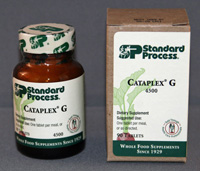
|
Depression Can Break Your HeartHeart Disease & Depression Closely ConnectedResearch over the past two decades has shown that depression and heart disease are common companions and, what is worse, each can lead to the other. It appears now that depression is an important risk factor for heart disease along with high blood cholesterol and high blood pressure. A study conducted in Baltimore, MD found that of 1,551 people who were free of heart disease, those who had a history of depression were four times more likely than those who did not to suffer a heart attack in the next 14 years. In addition, researchers in Montreal, Canada found that heart patients who were depressed were four times as likely to die in the next 6 months as those who were not depressed. Depression may make it harder to take the medications needed and to carry out the treatment for heart disease. Depression also may result in chronically elevated levels of stress hormones, such as cortisol and adrenaline, and the activation of the sympathetic nervous system (part of the "fight or flight" response), which can have deleterious effects on the heart. The first studies of heart disease and depression found that people with heart disease were more likely to suffer from depression than otherwise healthy people. While about 1 in 20 American adults experience major depression in a given year, the number goes to about one in three for people who have survived a heart attack. Furthermore, other researchers have found that most heart patients with depression do not receive appropriate treatment. Cardiologists and primary care physicians tend to miss the diagnosis of depression; and even when they do recognize it, they often do not treat it adequately. The public health impact of depression and heart disease, both separately and together, is enormous. Depression is the estimated leading cause of disability worldwide, and heart disease is by far the leading cause of death in the United States. Approximately one in three Americans will die of some form of heart disease. Studies indicate that depression can appear after heart disease and/or heart disease surgery. In one investigation, nearly half of the patients studied one week after cardiopulmonary bypass surgery experienced serious cognitive problems, which may contribute to clinical depression in some individuals. Next: Depression Increases Risk of Heart Disease Adapted from: Depression Can Break Your Heart
|
|
||||||||||||||||||
|


